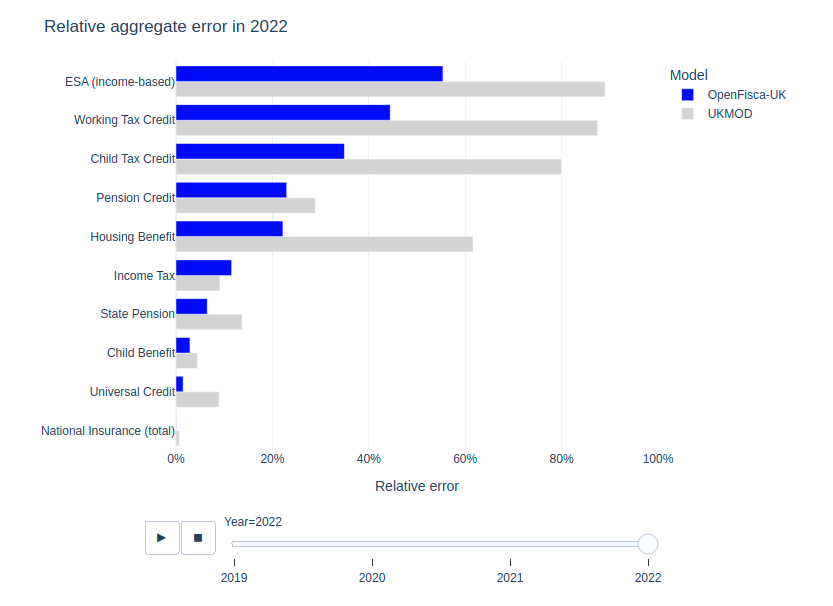Technical Documentation
US Model Documentation
Technical details about the US Enhanced Current Population Survey (ECPS), tax and benefit calculators, and validation methodology.
Enhanced CPS Documentation →UK Model Validation
Detailed information about the UK tax and benefit model, including data sources, calibration methodology, and validation results.
UK Model Validation →GitHub Repositories
Access our open-source code repositories for all PolicyEngine models, including tax-benefit rules, data processing pipelines, and web interface.
PolicyEngine on GitHub →
